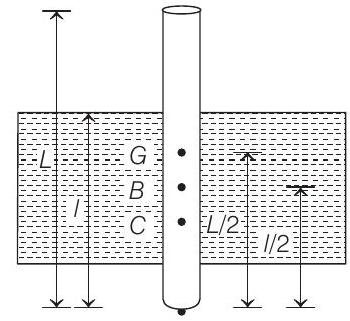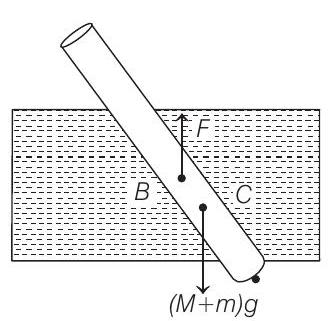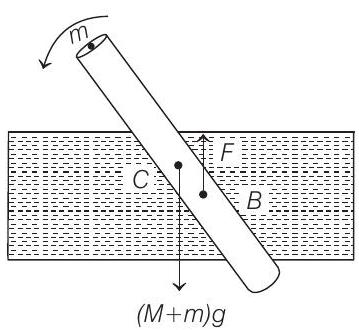Properties of Matter 2 Question 20
20. A wooden stick of length
(1999, 10M)
Show Answer
Answer:
Correct Answer: 20.
Solution:
- Let

(i)

(ii)

(iii)
Mass
Now, refer figures (i) and (ii).
For vertical equilibrium
or
Position of CM ( of rod
Centre of buoyancy
We can see from figure (ii) that for rotational equilibrium of the rod,
Therefore,






